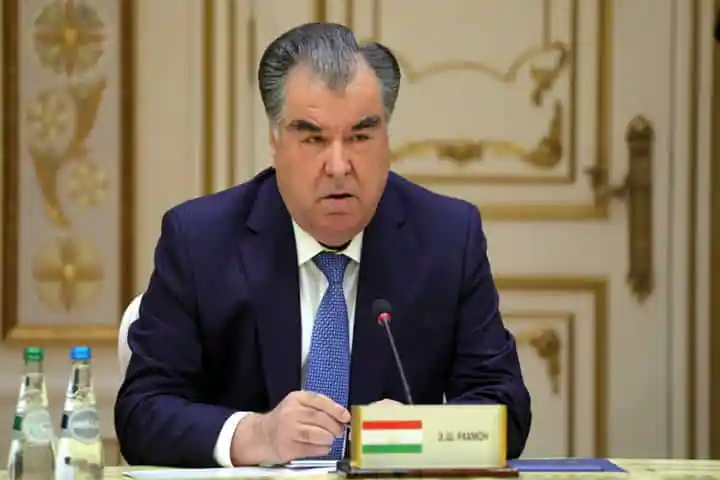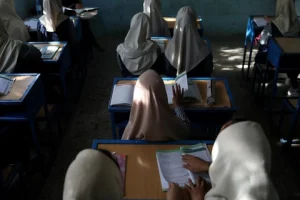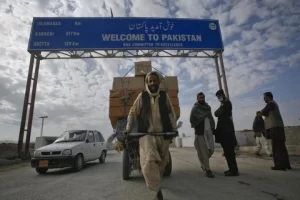The Taliban on Tuesday announced its “government”. Though some are calling it an interim government going by the Taliban's periodical pronouncements, we have, as yet, no clue if this is actually an interim one. In any case the Taliban government is, mildly speaking, an interesting one. Many of the ministers, such as Sirajuddin Haqanni, who will be the Home Minister, are sanctioned terrorists.
As expected, the National Resistance Movement headed by Ahmed Massoud and former Afghan Vice President Amrullah Saleh has denounced the government . They have announced that they are continuing their resistance and Panjshir had not submitted to the Taliban in spite of the latter announcing victory in the province recently.
The embassy of Afghanistan on Wednesday released a statement from the Foreign Ministry of the 'Islamic Republic of Afghanistan', condemning the Taliban government as "illegitimate and unjustifiable."
While most other governments, including that of Pakistan, are on a wait and watch mode, two Central Asian countries, bordering Afghanistan have made their positions clear regarding the Taliban government. And both positions are diagonally opposite to each other.

Uzbekistan, which had long engaged with the Taliban and even hosted Taliban delegations, has hailed the announcement of the government formation in Afghanistan. In a statement the Uzbekistan Ministry of Foreign Affairs said that it hoped that this was the beginning of the achievement of a broad national consensus, and establishment of an enduring peace and stability in the country. Signalling its endorsement, the statement further said that the country is ready to develop a constructive dialogue and practical cooperation with the "new state organs of Afghanistan".
This is as close as it can get to a de facto recognition of the Taliban government.
While neighbouring Turkmenistan has remained silent, though already engaging with the Taliban after it took over Kabul on 15 August, Tajikistan has come out strongly in favour of the Panjshir resistance. Incidentally, both Uzbekistan and Turkmenistan are not part of the Russia-led Collective Security Treaty Organisation (CSTO).
As Dushanbe began celebrating the thirtieth anniversary of Tajikistan's independence, President Emamoli Rahmon in an address to the nation delivered the first salvo. Without naming Pakistan, he stressed that instability and tragedy of Afghanistan was the result of foreign interference in the country, which was continuing till now. Over the last one month, the president underscored, the situation in the country has, unfortunately, become more complicated and tragic and was of great concern to the countries of the region and the world.
The president expressed regret by the way the Afghans had been abandoned by powers who used them and called again for international organisations to protect the human rights of the Afghan people, and for "immediate and collective" measures for the formation of a government of "national reconciliation, taking into account the interests of all peoples and minorities living in Afghanistan".
Coming soon after the Taliban's announcement of its government, this is nothing but a rejection of the Taliban's government.
But this was not all. Coming in the heels of the President's speech was a press conference by the Afghan ambassador in Dushanbe Mohammad Zohir Agbar. Rejecting the Taliban government, which he said had taken the country by force, he stressed that the resistance in Panjshir would continue, and that both Ahmed Massoud and Amarullah Saleh were still present in Panjshir. The war was not one between fellow Afghans but one which had been foisted on the Afghans by external forces, he said in an obvious reference to Pakistan whose spy chief had to fly in to Kabul to get the government formation going and which is accused of sending its air power to quash the resistance in Panjshir.
The ambassador further signalled that it was more than likely that a council may be constituted in Afghanistan which would include those like Ahmed Massoud, Amarullah Saleh, Marshall Rashid Dostum and others under the flag of NRF and which could fight the Taliban. He stressed that the NRF did not consist only of Tajiks but included Uzbeks, Pashtuns and Hazaras, enjoying the confidence of all the Afghan people.
The ambassador, it is obvious, could not have spoken without the endorsement of the Tajik authorities.
While Tajikistan's position on Afghanistan, the Taliban and the National Resistance Front has been manifest for a while, this strong position is striking, diverging as it does, not only with that of its regional neighbours but even with Russia, with whom Tajikistan shares close ties, possibly the closest amongst all other CIS countries. It also houses Russia's largest military base outside the Russian Federation.
Sources in both Kabul and Dushanbe say that Afghan pilots who fled to Tajikistan were able to fly to the Panjshir valley to deliver both humanitarian and limited military aid. The war, as an observer said on August 15, may just have begun.
Also Read: What explains Turkmenistan's embrace of the Taliban?
Also Read: Taliban victory inflames Central Asian frontline, worries Russia




















